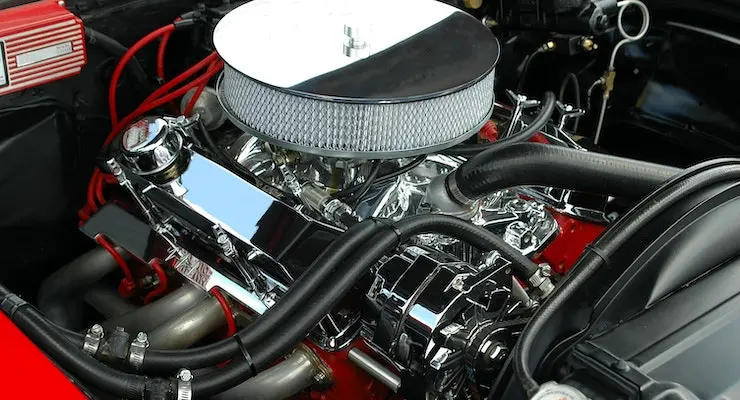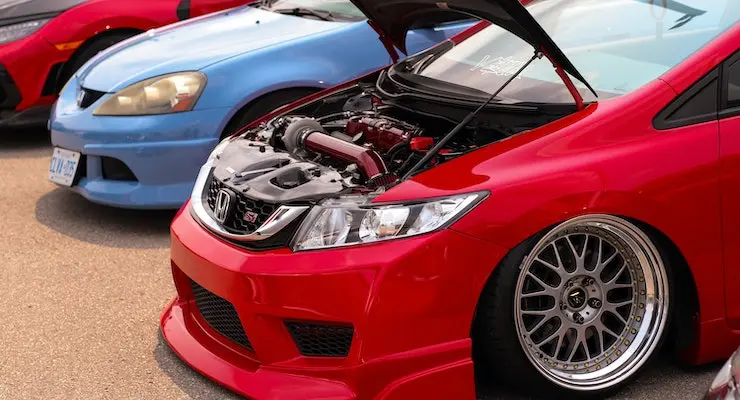In the realm of automotive troubles, few issues are as concerning and frustrating as a car overheating. This phenomenon can leave drivers stranded on the side of the road, wondering about the root causes and possible solutions. One common remedy that often comes to mind is antifreeze. In this comprehensive guide, we delve into the intricacies of car overheating with antifreeze, shedding light on its mechanisms, causes, prevention, and more.
The Role of Antifreeze
Antifreeze, also known as coolant, is a vital component in the well-being of your vehicle’s engine. Its primary role is to regulate the engine’s temperature, preventing both overheating and freezing. This is achieved through a careful balance of heat absorption and dissipation, ensuring optimal engine performance regardless of weather conditions.
The Mechanism Behind Car Overheating

Car engines generate a tremendous amount of heat during their operation. This heat must be managed effectively to prevent damage to the engine components. Antifreeze aids in this process by absorbing excess heat and transferring it to the radiator, where it can be dissipated into the surrounding air. However, if there is a malfunction in this heat exchange process, overheating can occur.
Causes of Car Overheating with Antifreeze
Car overheating with Antifreeze can be a frustrating and worrying situation. Even if you have plenty of antifreeze in your cooling system, overheating can still occur for several reasons:
Low Antifreeze Levels
Insufficient levels of antifreeze in the cooling system can lead to ineffective heat transfer, resulting in Car Overheating with Antifreeze. Regularly checking and maintaining the proper antifreeze levels is crucial to prevent overheating.
Cooling System Leaks
Leaks in the cooling system can compromise the antifreeze’s effectiveness, leading to a reduced ability to regulate temperature. Identifying and fixing leaks promptly is essential.
Faulty Thermostat
The thermostat plays a pivotal role in regulating the flow of antifreeze within the engine. A malfunctioning thermostat can disrupt this flow, resulting in overheating.
Blocked Radiator and Loosed Cap
Dirt, debris, and mineral deposits can accumulate in the radiator over time, obstructing the dissipation of heat. Regular radiator maintenance is essential to prevent overheating.
A loose, damaged or incorrectly-rated radiator cap can allow pressure to escape from the cooling system. This lowers the coolant’s boiling point and promotes Car Overheating with Antifreeze. Inspect the radiator cap for cracks, looseness or other defects. Make sure it maintains the system pressure rating recommended by your vehicle manufacturer.
Cooling Fan Issues
The cooling fan helps enhance the heat dissipation process. Malfunctions in the fan or its associated components can contribute to overheating.
Bad Water Pump
The water pump circulates the coolant through the engine. If the water pump fails, the coolant will not be able to circulate and the engine will overheat.
Air in Cooling System
A silent saboteur often lurks within – air trapped in the cooling system. The unassuming air bubbles, innocuous as they may seem, wield the power to hinder the seamless flow of coolant, ultimately leading to a cascade of problems, including engine overheating.
Type of Coolant
Coolant choice, an often-overlooked factor, can breach this fortress. This seemingly minor decision can damage the cooling system and cause engine overheating. We discuss the invisible threat of the wrong coolant, its harmful effects on the cooling system, and how to prevent this automotive disaster in this comprehensive discussion.
Preventive Measures
Here are the measure to avoid Car Overheating with Antifreeze.
Regular Maintenance
Scheduled maintenance, including antifreeze level checks, radiator flushes, and thermostat inspections, can prevent overheating issues before they occur.
Adequate Ventilation
Ensuring that the radiator and cooling system have proper airflow is crucial. Keep the grille and surrounding areas clear of debris.
Timely Repairs
Address any leaks, thermostat malfunctions, or cooling system issues promptly to prevent them from escalating into overheating problems.
Addressing Car Overheating
If you find yourself in a situation where your car is overheating, it’s essential to act swiftly and safely. Follow these steps:
Pull Over
If you notice the temperature gauge climbing towards the danger zone, find a safe place to pull over and turn off the engine.
Let It Cool
Open the hood to allow heat to dissipate faster. Do not attempt to open the radiator cap while the engine is still hot, as this can lead to steam burns.
Check Antifreeze Levels
Once the engine has cooled down, check the antifreeze levels. If they are low, adding more antifreeze can help alleviate the issue temporarily.
Professional Assistance
If you’re unsure about the cause of the overheating or if it’s a recurring problem, seek professional assistance. An experienced mechanic can diagnose and fix the underlying issue.
Conclusion
Car overheating with antifreeze can be a frustrating and potentially damaging issue, but with proper understanding and maintenance, it can be managed effectively. Regular checks, proper maintenance, and timely repairs are key to preventing overheating and ensuring your vehicle’s longevity.
